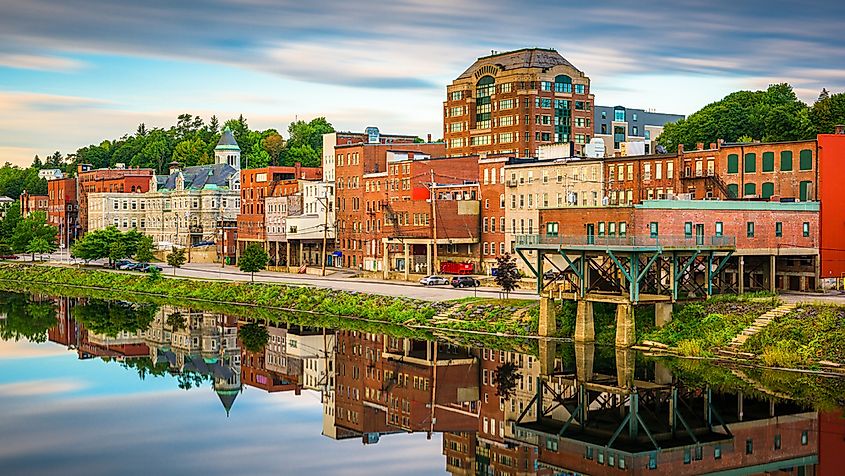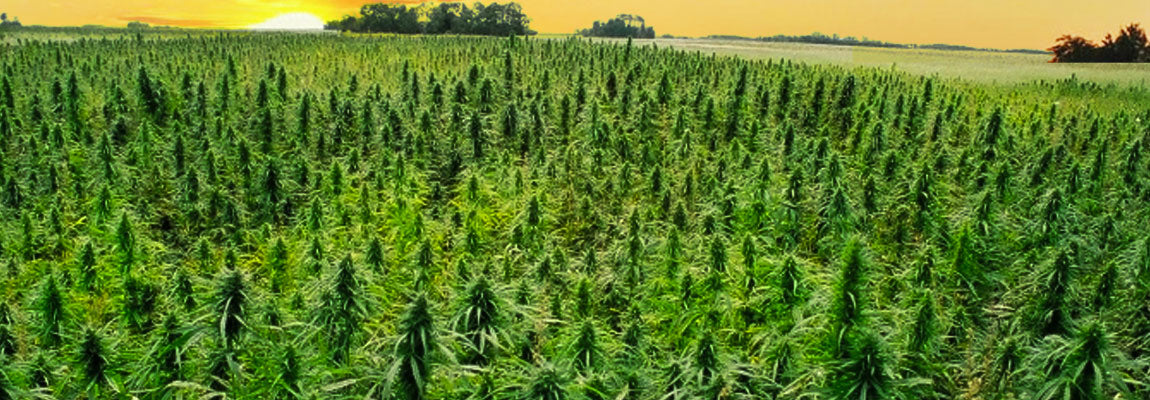
The Pine Tree State’s Psychedelic Pivot: Maine Legislators Consider Proposal to Permit Adult Psilocybin Possession and Use
In the rugged, forested expanse of Maine, where lobsters reign supreme and Stephen King’s eerie tales find their roots, a new narrative is emerging—one that could reshape the state’s relationship with a natural substance long shrouded in taboo. As of April 1, 2025, Maine legislators are once again at the forefront of a burgeoning national conversation, deliberating a proposal that could permit adults to possess and use psilocybin, the psychoactive compound found in “magic mushrooms.” This isn’t just a fleeting legislative whim; it’s a bold step toward rethinking how Maine—and perhaps America—views plant-based medicines. Known formally as LD 1034, this Maine Legislators Proposal could mark a historic shift, blending the state’s independent spirit with a growing acceptance of psychedelic therapy.
Maine, a state celebrated for its natural beauty and progressive streaks—like legalizing recreational marijuana in 2016—is no stranger to challenging the status quo. Now, with this latest push, the question on the table is clear: should adults over 21 face criminal penalties for possessing up to one ounce of psilocybin? Rep. Grayson Lookner, a Democrat from Portland and the bill’s sponsor, argues emphatically, “No.” His proposal, backed by a bipartisan coalition including Sen. Donna Bailey and Rep. David Boyer, doesn’t seek to create a commercial market or regulate therapeutic use. Instead, it’s a straightforward decriminalization effort—removing penalties for personal possession and leaving the rest to individual choice. It’s a move that’s as Maine as a lighthouse weathering a storm: practical, unpretentious, and fiercely autonomous.
A Groundswell of Support Amidst a National Trend
The Maine Legislators Permit conversation isn’t happening in a vacuum. Across the U.S., psychedelics are shedding their counterculture stigma, buoyed by compelling research and shifting public sentiment. Oregon blazed the trail in 2020, legalizing psilocybin therapy, followed by Colorado in 2022, which decriminalized possession. Cities like Washington, D.C., Detroit, and Seattle have joined the fray, prioritizing personal freedom over punitive measures. Maine’s latest proposal aligns with this wave, but it stands out for its simplicity. Unlike previous attempts in the state—like Sen. Bailey’s 2021 Maine Psilocybin Services Act, which aimed to establish regulated treatment centers but stalled in the House—LD 1034 cuts through the red tape. “These aren’t dangerous synthetic drugs,” Lookner told the Criminal Justice and Public Safety Committee on March 31, 2025. “They’re natural organisms that have been used medicinally by cultures around the world for millennia.”
The numbers back up the growing interest. A 2021 Johns Hopkins study found that psilocybin-assisted therapy led to significant reductions in depression symptoms for 67% of participants, with effects lasting up to a year. Another study from the National Institute of Health in 2020 highlighted its potential for treating PTSD, anxiety, and even cluster headaches—a debilitating condition with few effective remedies. In Maine, where the opioid crisis claimed 500 lives in 2020 alone, proponents see psilocybin as a lifeline. “I used to go to bed wishing I wouldn’t wake up,” testified Cecilia Corey, a Hartland veteran, during the public hearing. After surviving sexual trauma in the Air Force and losing her son to a murder-suicide, she turned to microdosing psilocybin. “It’s helped me process trauma and work through depression when nothing else did.”

Voices from the Forest: The Human Stories Behind the Policy
Maine’s forests, teeming with wild mushrooms like Psilocybe caerulipes and Psilocybe semilanceata, have long whispered secrets of their potential. For some residents, those whispers have become a roar. A central Maine man, speaking anonymously to the Press Herald due to legal risks, described how homegrown mushrooms alleviated his severe depression after traditional medications failed. “It’s not about getting high,” he said. “It’s about finding peace.” Such stories resonate deeply in a state where self-reliance is a badge of honor. Aaron Parker of Decriminalize Maine echoed this sentiment at the hearing: “I’ve watched psilocybin bills die for years because they were too complex. This one’s simple, and that’s its strength.”
Yet, not everyone’s convinced. The Maine Center for Disease Control and Prevention (CDC) took a neutral stance, acknowledging psilocybin’s therapeutic promise but cautioning about unpredictable effects—insomnia, heightened anxiety, or risks for those with psychotic conditions like schizophrenia. “Maine CDC disagrees with decriminalizing any possession of a substance for therapeutic purposes without a focus on patient safety,” Director Puthiery Va stated. Law enforcement, including the Maine Drug Enforcement Agency (MDEA), pushed back harder. Agent Roy Pelletier noted that from 2024 to date, MDEA seized over 4.5 pounds of psilocybin, often alongside fentanyl and methamphetamine. “There’s no quality control with illegal traffickers,” he warned. “No recommended non-lethal dose.”
Weighing Freedom Against Risk: The Legislative Tightrope
The debate hinges on a classic tension: personal liberty versus public safety. Lookner’s rebuttal to critics was blunt: “Everything you cited about psilocybin—unpredictable effects, risks—could be said of alcohol, and we don’t criminalize that.” It’s a compelling point. In 2023, Maine reported 2,137 alcohol-related arrests, dwarfing the handful of psilocybin cases, yet booze remains legal. LD 1034’s fiscal note suggests minimal impact—perhaps a slight reduction in court workloads—but its cultural ripple could be seismic. The ACLU of Maine and the Reason Foundation rallied behind it, with the former arguing that decriminalization could “help Maine overcome its overdose and mental health crises” by redirecting resources.
Still, the road ahead is rocky. Past efforts, like the 2022 Senate-approved psilocybin therapy bill that died in the House, show how divisive this issue can be. Opponents, including the Maine Medical Association in earlier hearings, have urged waiting for FDA approval—a process that could take years despite the agency’s 2018 and 2019 “breakthrough therapy” designations for psilocybin. Rep. Michele Meyer, a Health and Human Services Committee co-chair, expressed similar reservations in 2022: “It’s an important discussion, but not without full federal backing.”
Maine’s Psychedelic Future: A Crossroads of Tradition and Innovation
As the Criminal Justice and Public Safety Committee deliberates, Maine stands at a crossroads. Permit Maine Legislators to greenlight LD 1034, and the state could join a vanguard redefining drug policy—one that honors individual choice and nature’s bounty. Reject it, and the status quo persists, with psilocybin remaining a Schedule X substance, punishable by up to a year in jail and a $2,000 fine. For now, the proposal enjoys bipartisan cosponsorship from eight lawmakers, a rare unity in polarized times. “This isn’t about encouraging drug use,” Lookner emphasized. “It’s about recognizing adults should have the freedom to choose natural medicines that grow right here in Maine’s soil.”
Picture this: a Mainer foraging in the misty woods, plucking a mushroom not for a clandestine high, but for healing. It’s a scene that blends the state’s rugged individualism with a forward-thinking ethos. Whether Maine Legislators Permit this vision remains uncertain, but the conversation itself is a triumph. As of April 1, 2025, the Pine Tree State isn’t just debating policy—it’s wrestling with its identity, balancing tradition with a psychedelic twist. In a nation grappling with mental health and addiction, Maine’s choice could light a path—or cast a long shadow—over the future of plant medicine.
Discover the future of wellness with D Squared WorldWide, your premier source for wholesale psilocybin-inspired products! As Maine legislators consider LD 1034 to permit adult psilocybin possession, the demand for natural, therapeutic solutions is soaring. Our brand harnesses this momentum, offering high-quality, responsibly sourced products that align with emerging trends in mental health and personal freedom. From innovative edibles to wellness blends, D Squared WorldWide delivers what today’s conscious consumers crave. Join the psychedelic revolution and elevate your inventory—schedule a call with us today to explore exclusive wholesale opportunities!
Reference:
American Civil Liberties Union of Maine. (2025, March 31). Testimony in support of LD 1034: An act to decriminalize psilocybin possession for adults. ACLU Maine. https://www.aclumaine.org/sites/default/files/ld1034_testimony.pdf
Goodwin, G. M., Aaronson, S. T., Alvarez, O., Arden, P. C., Baker, A., Bennett, J. C., ... Malievskaia, E. (2021). Single-dose psilocybin for a treatment-resistant episode of major depression. New England Journal of Maine Medicine, 385(18), 1637–1647. https://doi.org/10.1056/NEJMoa2206443
Maine Center for Disease Control and Prevention. (2025). Statement on LD 1034: Psilocybin decriminalization. Maine Department of Health and Human Services. https://www.maine.gov/dhhs/mecdc/statements/ld1034-psilocybin-2025.pdf
Maine Drug Enforcement Agency. (2025, March 31). Annual report on controlled substance seizures: 2024 summary. Maine Department of Public Safety. https://www.maine.gov/dps/mdea/reports/2024-seizures.pdf
Maine Legislature. (2025). LD 1034: An act to permit adult possession and use of psilocybin. 132nd Maine Legislature, First Regular Session. https://legislature.maine.gov/legis/bills/display_ps.asp?LD=1034&snum=132
National Institute on Drug Abuse. (2020). Psilocybin (magic mushrooms). U.S. Department of Health and Human Services. https://nida.nih.gov/research-topics/psilocybin-magic-mushrooms



